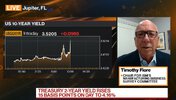Dona Ferentes
Beware of geeks bearing grifts
- Joined
- 11 January 2016
- Posts
- 18,313
- Reactions
- 25,112
Cheques and balances???I've been watching a few commentators. Their opinion is that we're going to be in for a deflationary shock, particularly given the reducing in M2 money supply.
I think that's supported by the overall downward trend on crude, as well as GDP results coming in worse than expected for parts of the EU and the US.
Let's see what happens in the financial world....







